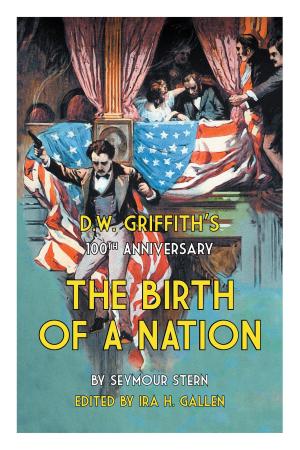Iconic Ideas in the History of Social Thought
Nonfiction, Social & Cultural Studies, Social Science, Sociology| Author: | Wsevolod W. Isajiw | ISBN: | 9781460281536 |
| Publisher: | FriesenPress | Publication: | May 12, 2016 |
| Imprint: | Language: | English |
| Author: | Wsevolod W. Isajiw |
| ISBN: | 9781460281536 |
| Publisher: | FriesenPress |
| Publication: | May 12, 2016 |
| Imprint: | |
| Language: | English |
The book distinguishes a number of types of social thought and traces their history from “tribal” times until present day. It shows that human beings thought systematically about their societies very early in their development, even if only informally, as they did not write treatises about them. In many ways, they formed a basis for all social thought that followed. The book discusses the social thought of ancient civilizations and talks about how the rationalism of Greek and Roman times and the religiosity of early and later Christianity influenced its development. The book then explains the influence of the Reformation, the change of the intellectual climate and the emergence of new approaches to the discussion about the nature of society. It talks about the theorists who argued that societies were created by social contract among people and some, like the colorful Robert Owen, advised that we should learn by doing. He tried to establish two colonies in which people would work and live together and share the products of their work among all in the colony. This was a benign socialist idea. It did not work. But soon the aggressive socialism of Karl Marx and his followers emerged. A strong trend emerged in the meantime for the scientific study of society, employing all the methods of the natural sciences. Sociology as a professional discipline thus developed. An issue emerged whether society is just a congregation of individuals or has a reality of its own. Differences among scholars emerged with American sociologists favoring individualistic sociology and Europeans favoring the reality of society approach. But the contest was crowned by Max Weber, whom some consider to be the greatest sociologist who ever lived, and his “analytical” and “verstehende” sociology. The field of sociology has spread out widely into various specializations. The book also studies popular social thought. It briefly describes Islamic social thought, looks at popular thought in Europe in the first half of the 20th century, and current American popular thought. It ends by discussing the future of social thought.
The book distinguishes a number of types of social thought and traces their history from “tribal” times until present day. It shows that human beings thought systematically about their societies very early in their development, even if only informally, as they did not write treatises about them. In many ways, they formed a basis for all social thought that followed. The book discusses the social thought of ancient civilizations and talks about how the rationalism of Greek and Roman times and the religiosity of early and later Christianity influenced its development. The book then explains the influence of the Reformation, the change of the intellectual climate and the emergence of new approaches to the discussion about the nature of society. It talks about the theorists who argued that societies were created by social contract among people and some, like the colorful Robert Owen, advised that we should learn by doing. He tried to establish two colonies in which people would work and live together and share the products of their work among all in the colony. This was a benign socialist idea. It did not work. But soon the aggressive socialism of Karl Marx and his followers emerged. A strong trend emerged in the meantime for the scientific study of society, employing all the methods of the natural sciences. Sociology as a professional discipline thus developed. An issue emerged whether society is just a congregation of individuals or has a reality of its own. Differences among scholars emerged with American sociologists favoring individualistic sociology and Europeans favoring the reality of society approach. But the contest was crowned by Max Weber, whom some consider to be the greatest sociologist who ever lived, and his “analytical” and “verstehende” sociology. The field of sociology has spread out widely into various specializations. The book also studies popular social thought. It briefly describes Islamic social thought, looks at popular thought in Europe in the first half of the 20th century, and current American popular thought. It ends by discussing the future of social thought.















